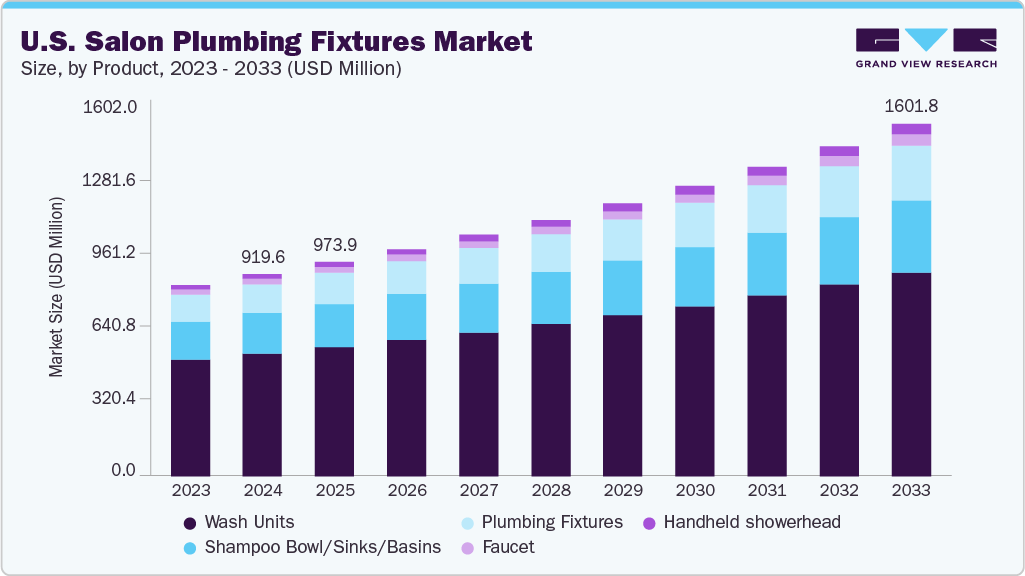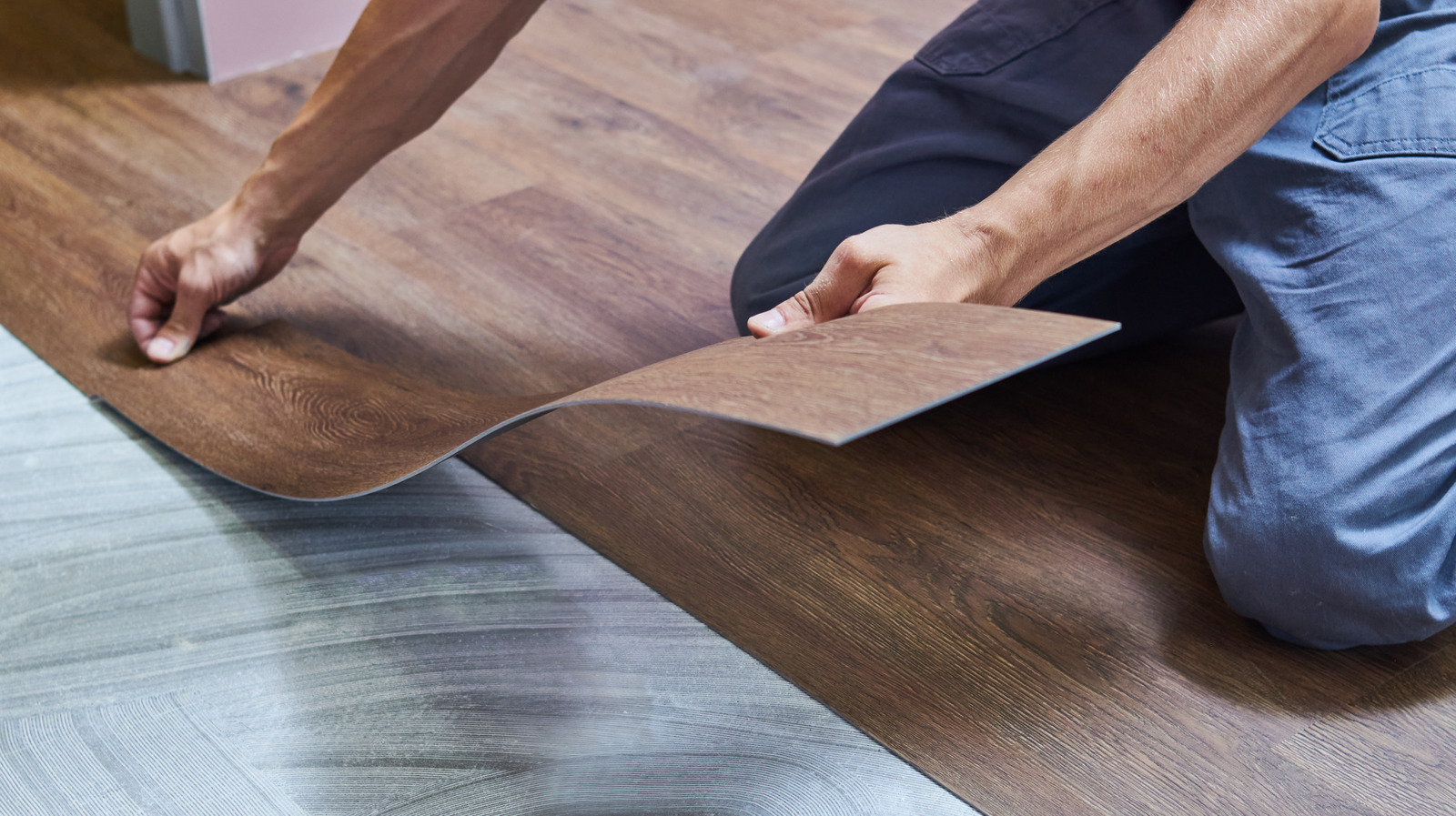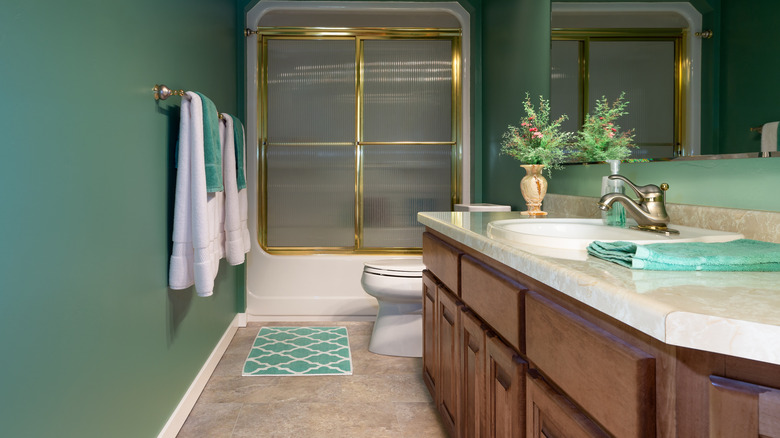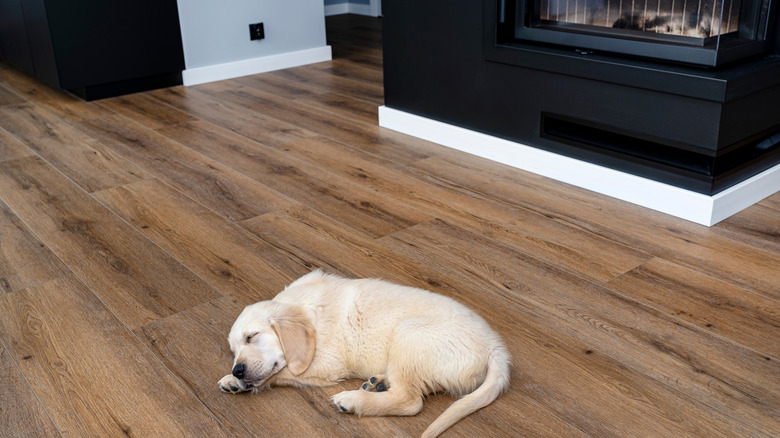If you plan to sell your home someday, it’s worthwhile to understand how your floors may impact the resale value. Lindsey Schmidt, a licensed realtor based in Virginia, told House Digest in an exclusive interview that vinyl floors are popular for their practicality and reasonable price. “I do recommend it in certain rooms, as it is cost-effective, durable, and easy to maintain,” she says. Schmidt believes that vinyl floors bring value in spaces that require more durability, such as bathrooms, basements, and rental properties. However, she cautions that homeowners can certainly go wrong with vinyl, using it in ways that may deter potential buyers. On the other hand, if installed properly with high-quality materials, vinyl floors can be an excellent flooring option to increase your home’s value.
Advertisement
Vinyl floors can be a wise investment to spruce up your home for sale. There are many varieties to choose from, such as luxury waterproof planks that mimic the look of natural wood and sheets made of durable fiberglass that come in many styles and colors. Vinyl floors are relatively simple to install at home, but some may require a professional. They are easy to keep clean and are usually layered to protect against surface scratches, stains, and discoloration. Whether you are considering installing vinyl floors or replacing the ones you currently have, Schmidt shares her expertise about its benefits, potential disadvantages, and how to install it strategically to boost your home’s resale value.
Advertisement
The pros and cons of vinyl flooring in your home
In an exclusive interview with House Digest, Virginia-based realtor, Lindsey Schmidt, says that vinyl floors come with some important advantages. Vinyl floors are durable and water-resistant, making them an excellent choice in rooms with excess moisture. “In my experience, buyers look for vinyl flooring in areas like bathrooms and basements where moisture could be a problem,” says Schmidt. “If the home already has it, it’s one item buyers can check off of their mental To Do (to budget for) list and makes them more comfortable moving forward.”
Advertisement
On the other hand, Schmidt warns that too much vinyl flooring could be a drawback for buyers. “Because of its lower cost, some people will install vinyl flooring throughout the entire home and more discerning buyers do not want it in ‘public’ spaces like the living and dining rooms,” she explains. “If the entire home is vinyl, it can also come across as a ‘flip’ which is a deterrent to some buyers.” Schmidt is clear that vinyl floors should be installed strategically, focusing on areas where its practicality truly adds value.
How to maximize your home’s resale value with vinyl floors
When opting for vinyl floors, it’s always best to choose a high-quality material if you can afford it, says Virginia-based realtor Lindsey Schmidt to House Digest in an exclusive interview. According to Schmidt, “higher quality materials will always be more desirable to buyers, not just for aesthetic purposes but because they generally hold up better to wear and tear and are easier to maintain.” Another real estate expert told House Digest that luxury vinyl tile is the best flooring material for your bathroom for resale value. With this being said, low-quality vinyl floors could detract from your home’s value. Some experts believe it’s among the top flooring choices that will make it harder to sell your home and should be avoided as much as possible.
Advertisement
As we know, vinyl floors are a desirable feature in certain spaces, and Schmidt says that the amount of vinyl flooring you use should be based on factors unique to your situation. “If the home is an investment property purely for tenants, I highly recommend vinyl flooring throughout as it can stand up to pets and more wear than an owner occupant would put on them,” she says. If the goal is to attract buyers, explore timeless trends like hardwood instead. “For top dollar for resale, I would recommend the trend in the area, which is often hardwood flooring,” says Schmidt.











